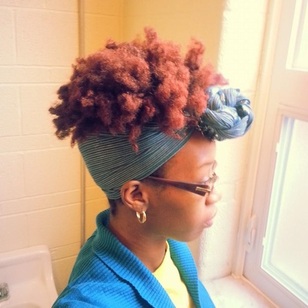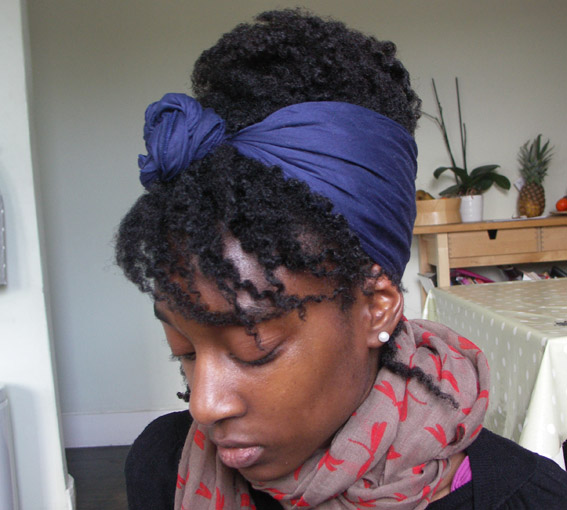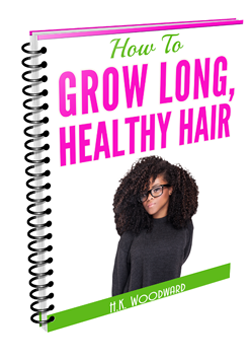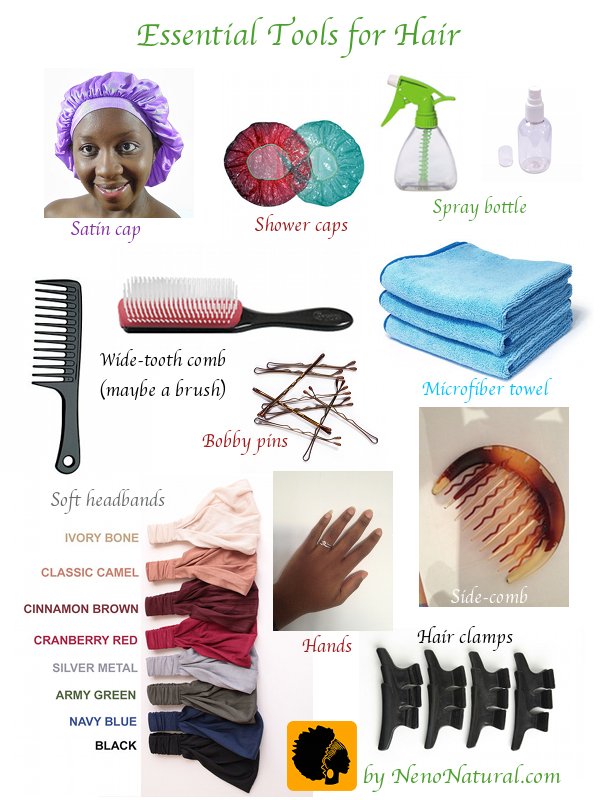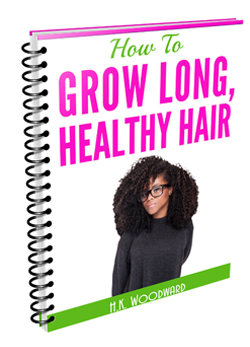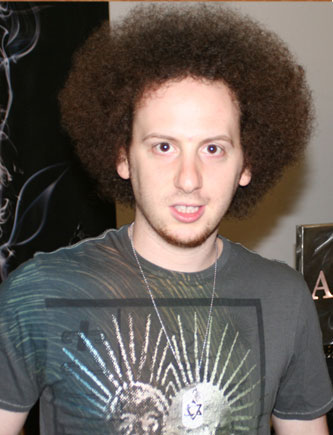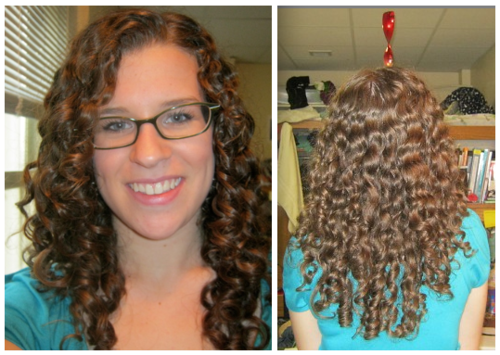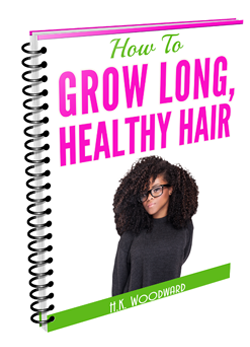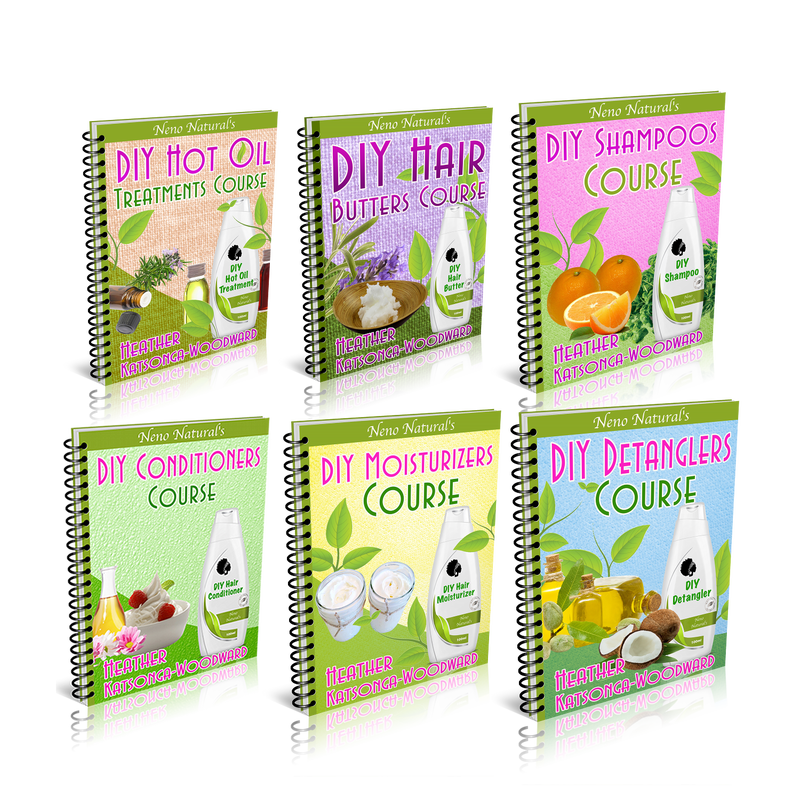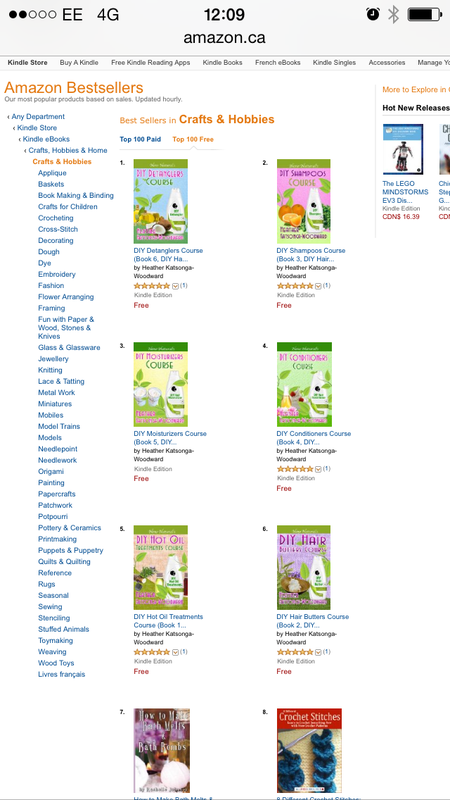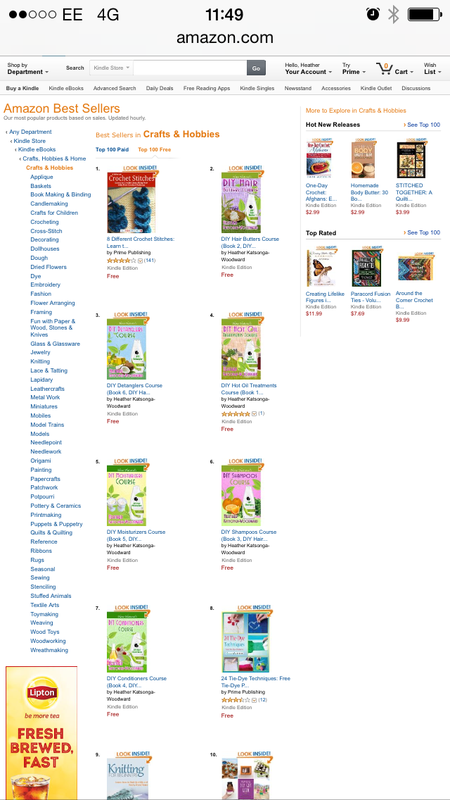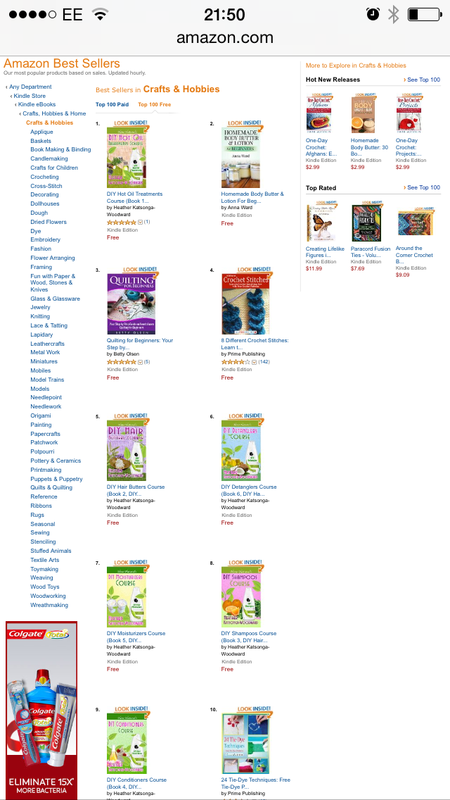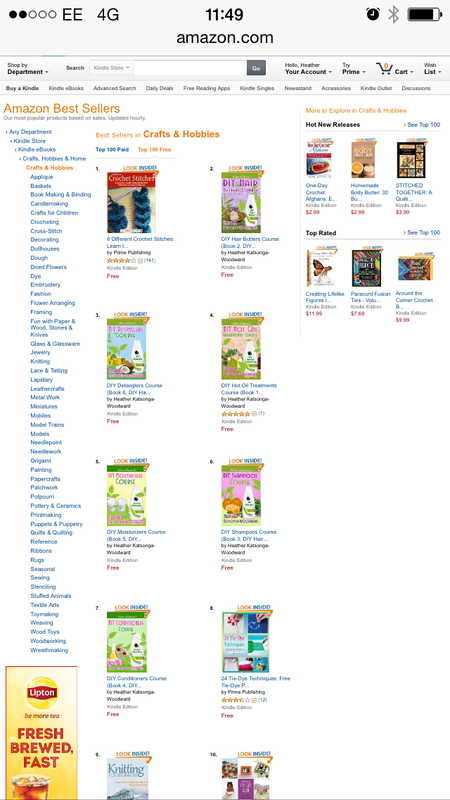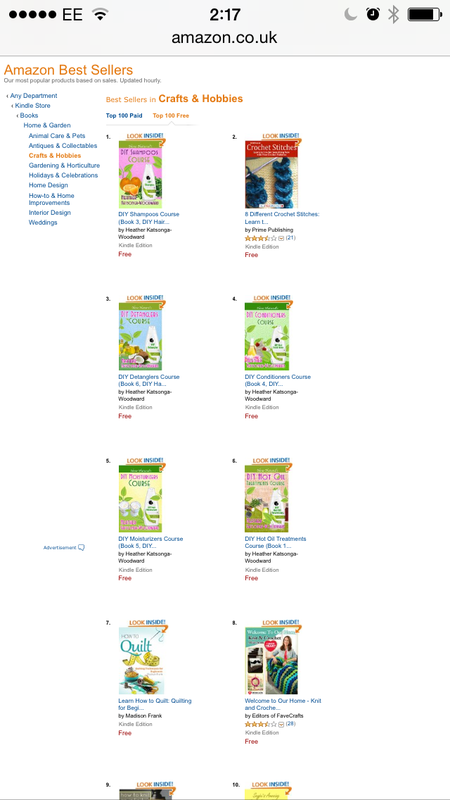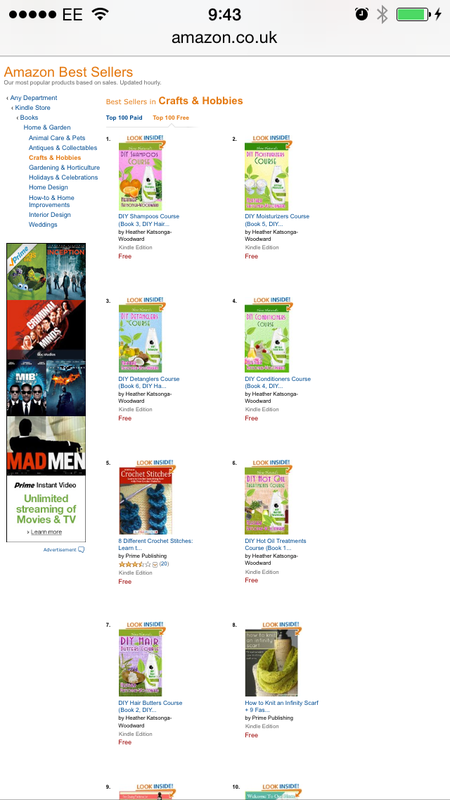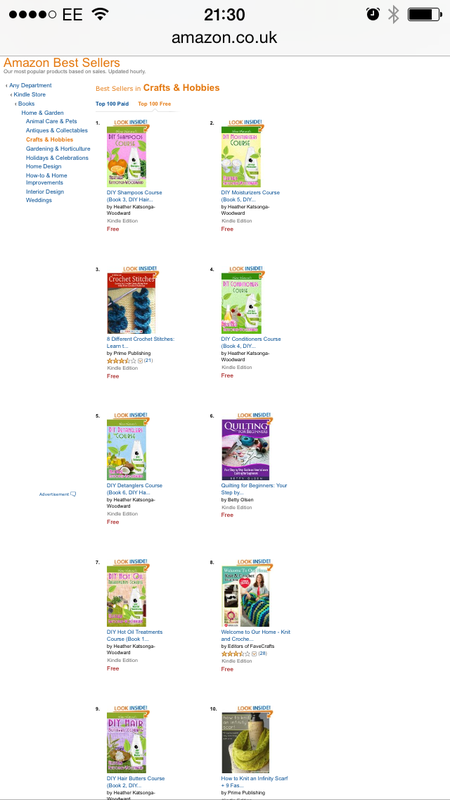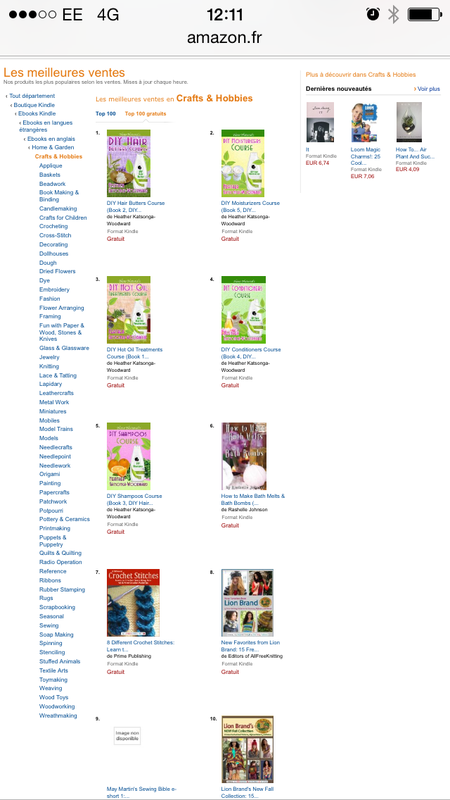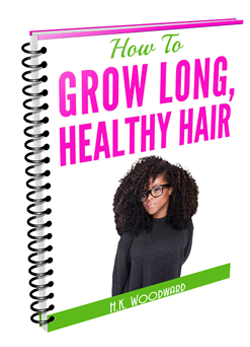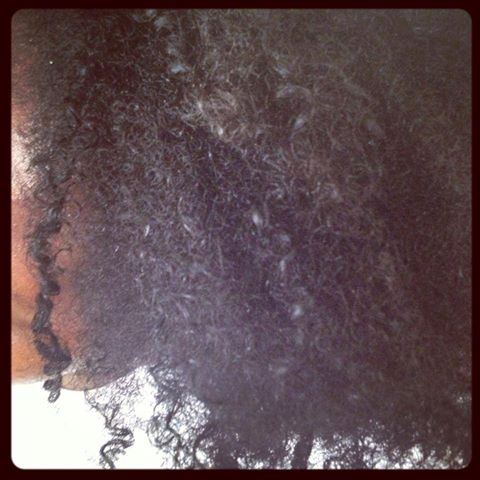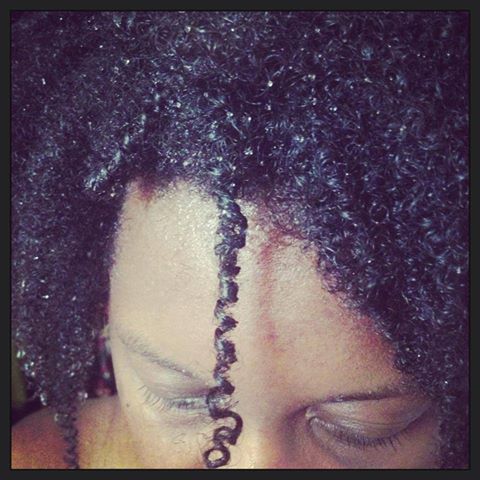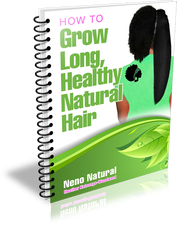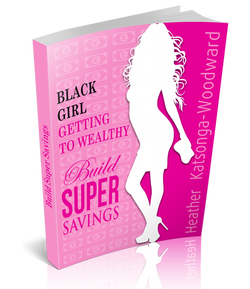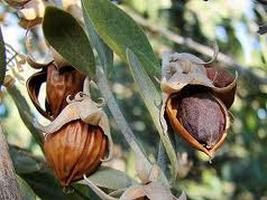 Jojoba seeds Jojoba seeds
When I decided to go natural, I knew I needed a good, pure oil. After some research jojoba became my oil of choice. Two key factors sold me on jojoba:
a) The fact that jojoba is the only oil whose molecular structure is similar to sebum (the oil that the scalp naturally produces) and b) It has a very long shelf life. The only oils I know to have longer are castor oil and coconut oil.[i] I shouldn’t have really cared about shelf life because as it turns out I go through my bottles pretty rapidly! Jojoba oil is derived from the seeds of evergreen jojoba shrubs (Simmondsia chinensis). It is native to Arizona, California and Mexico. 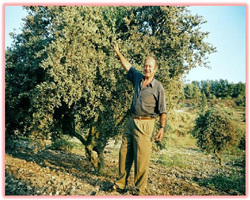 Jojoba evergreen shrub Jojoba evergreen shrub
It is one of the most nutrient rich and expensive botanical oils. Its benefits to hair include:[ii]
1. It is readily accepted by the scalp and does not mess with the scalp’s natural balance. This is because of its similar molecular structure to sebum (the scalp's natural oil). 2. It is reputed to have antibacterial properties. It soothes the scalp and can be used to treat dry scalp problems and dandruff. 3. It is composed of 98% monounsaturated fats and 2% saturated fats so it can penetrate the hair follicle and strengthen hair fibres from the inside. 4. Jojoba also hydrates hair from the inside of the hair shaft. So it works well as an agent for reducing hygral fatigue (the swelling and shrinking of hair as it it gets wet and dries that can weaken the hair fibre over time). 5. As a conditioner jojoba helps to add shine, elasticity and softness to hair. 6. Jojoba can be used to add volume to thinning hair. It adds volume and body to hair strands thereby giving an appearance of thickness. That said, note that if you have thin hair you can’t convert it to thick hair. That’s genetically predetermined. 7. You can mix jojoba oil with essential oils and massage the mixture into the scalp to stimulate blood flow to the scalp and encourage hair growth. I do this almost daily; jojoba is light and non-greasy. 8. Jojoba is an emollient – it fills in cracks that are on the surface of the hair cuticle, i.e. it helps to repair hair damaged by heat and styling. 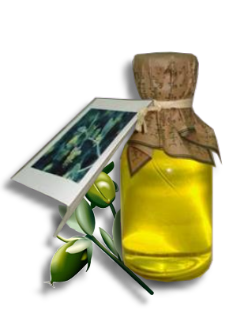
How can you use jojoba?
If you are using a shampoo that strips your hair, add a couple of tablespoons of jojoba oil to it. In this way your hair won’t get sucked (too) dry. Neno Natural’s Hair Growth Stimulator is composed of 50% jojoba and 50% grapeseed oil as the base. Chemical composition:[iii] Very high in monounsaturated fatty acids (98% of total fatty acids); also rich in Vitamin A, Vitamin B1, Vitamin B2, Vitamin B6, Vitamin E (very rich in), Myristic Acid (a saturated fatty acid), Plant Wax (similar to sebum). As you’re shopping for your jojoba note that unrefined jojoba is golden (you want this type); refined jojoba is clear and odourless. You might also like: THE best oil for natural hair. A mega summary! The supersonic benefits of argan oil on natural black hair 6 fabulous benefits of avocado oil on natural hair 8 Benefits of Castor oil for natural hair & a warning! 6 top benefits of coconut oil - a MUST for every natural hair regimen! 5 benefits of sweet almond oil on natural hair 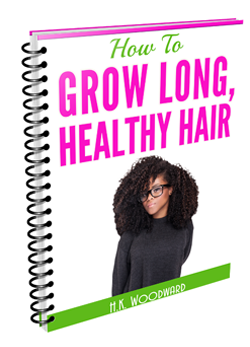
Get your FREE ebook on How To Grow Long, Healthy Natural Kinky or Curly Hair. References [i] Jojoba oil (wikipedia) [ii] Is jojoba oil good for thinning hair; Jojoba oil for dry hair; thejojobaoil.com; Jojoba benefits [iii] Jojoba carrier oil
Currently, damaged hair cannot be repaired permanently.
Weak and damaged hair conditioners simply fill in he holes where your cuticle has been damaged and after a few washes those holes get uncovered again. This is why those conditioners need to be re-applied every few weeks. Scientists are currently working on developing ingredients that can repair hair permanently but for the moment that research is in it infancy and the best you can do, is avoid getting hair damage in the first place. Here are a few tips:
How about henna? Well, henna only coats hair, it doesn't change the bonds in hair but by coating hair and making it fuller there may be more friction between hair leading to more tangles. Personally, if I were to dye my hair I would go for henna or a dye that coat hair (i.e. increases the likelihood of tangles) than dyes that lift the hair cuticle (i.e. and hence increase the likelihood of damage). 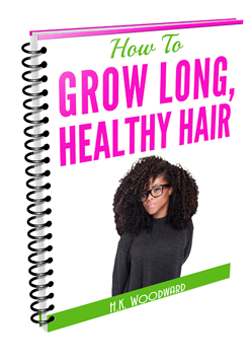
Get your FREE ebook on How To Grow Long, Healthy Natural Kinky or Curly Hair. 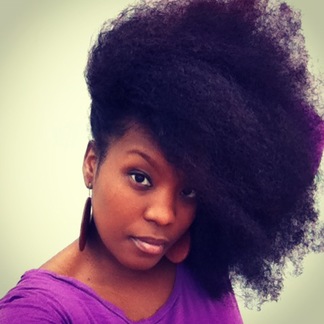 Click for Queen Donna's hair styles, journey & regimen Click for Queen Donna's hair styles, journey & regimen
Did you know that the cuticle, the outer layer of hair is covered in a fine layer of fats.
What is the function of these fats?
Effectively, they offer a degree of protection. However, when your hair gets exposed to sun the ultra violet light (UVA and UVB rays) degrades this fatty layer and you get sun damaged hair. This is why protective styling is just as important when it is very hot as it is when it is very cold. 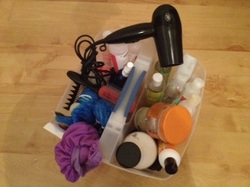 Heather's hair caddy Heather's hair caddy
This is an FAQ for sure!
To answer the question, I have an Amazon store with the products that I think work well for hair based on: a) my own usage b) usage by other naturals and most importantly c) reading the product list. Note that I am not the seller of most of these products. Hair care management is most important when you're trying to grow long, healthy hair but products are just as important because the wrong ones will spoil all your efforts. To avoid information overkill, at any one time I'll only ever have a maximum of 9 recommended products in a given category. There's no single product that will work well for everyone because we all have different hair textures and needs. Here's how to shop for good products: 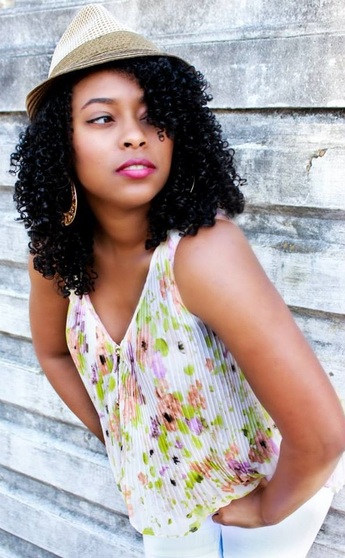 Click for Queen Dominique's hair styles, journey & regimen Click for Queen Dominique's hair styles, journey & regimen
SHAMPOO
A GOOD DEEP CONDITIONER
After deep conditioning your hair it should feel soft, springy, strong and "fresh". LEAVE-IN CONDITIONERS (aka Moisturizer)
OILS You want high grade oils, even when they are not organic you will get a better quality product if it has been cold pressed (i.e. refined without heat). I'm naturally going to recommend my awesome hair growth oil blend - you can use it for hot oil treatments and scalp massages: 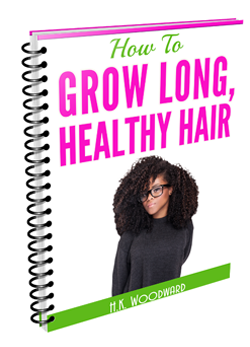
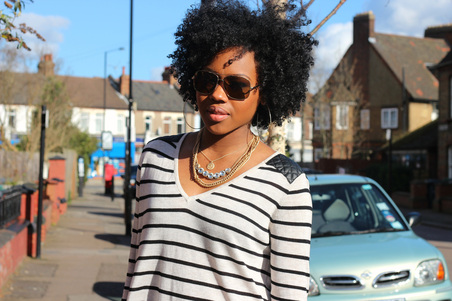 Click for Queen Teshna's hair styles, journey & regimen Click for Queen Teshna's hair styles, journey & regimen
BUTTERS
I would go for something shea butter based. Butters are great when applied to wet hair. CHEMICALS TO AVOID There are certain chemicals natural black hair does "not like" because they dry hair out or coat hair in a film that makes moisturising diffifult. Some chemicals, e.g. Parabens aren't bad for hair as such but have been linked to cancer. Whenever I buy hair products I go for those that are 100% made from natural materials. I would avoid anything with:
You don't need: a protein conditioner You would only use one if you had hair damage or periodically on relaxed hair where the protein has been depleted. Protein conditioners:
TOOLS The picture below shows all the basic tools you'll need to take good care of your hair. Every product is available in the Neno Natural Amazon Store. I talk about each tool in: 9 Essential must-have tools for natural hair management 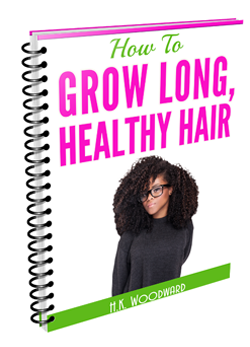
Get your FREE ebook on How To Grow Long, Healthy Natural Kinky or Curly Hair.
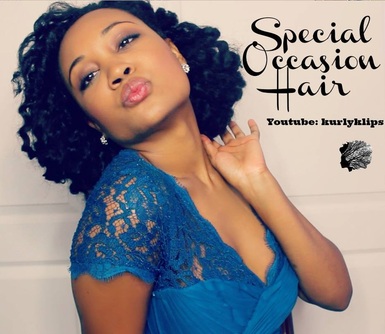 Click for Queen Lana's hair styles, journey & regimen Click for Queen Lana's hair styles, journey & regimen
Product build-up not only makes your hair look dirty but by clogging up your scalp, it could also be messing with hair growth.
If you have an itchy scalp, build-up could also be the reason. Here are five things you can do to stop product from building up on your hair: 1. Watch the grease! You don't need to grease your scalp to prevent dryness. Massage it with a good quality vegetable oil every other day to stimulate growth. If you're using an oil that isn't too thick and dense, e.g. coconut oil or jojoba even a daily scalp massage with a little oil won't clog the scalp up. 2. Avoid petrolatums Avoid petrolatum-based products; anything that has the texture of vaseline is too heavy and contains too much petrolatum. Vegetable butters and oils will do much more for you in the long-run. 3. Wash regularly Wash your hair at least weekly. This also helps to keep your hair softer. Personally, I think once every two weeks is not often enough although I have to admit I do sometimes get lazy and get to that point. 4. Don't go no-poo Shampoo is necessary to get rid of dirt, old oils and build-up. Like it or not, even good ingredients like oils and butters will build up over time and you can't wash those out with a conditioner or with water only. Just get a good quality, mild shampoo. 5. Keep it simple You don't have to use every product under the sun on your hair and especially not all at once. Get to the point where your dresser only has a max of 6 bottles for hair:
Have I missed anything? Feel free to chime in.
CurlyNikki recently received a huge backlash after featuring a white woman on the site. This is my perspective; I am going to try to be as balanced as possible:
Firstly, I am going to step away from race, completely: I feel sorry that WaterLily716 had to contend with so much hate because clearly she does see herself as struggling with curls. However, one of the issues I thought came through in her profile was that she's not struggling to gain wider, community acceptance as many type 4s do, but more accepting herself. Indeed, I have to admit that I don't think the struggle with type 3A hair is even close to that of 4A/4B/4C hair. These are my reasons:
These are the questions I have. In all fairness she does admit that the questions on the CurlyNikki application form didn't all apply to her. This could be seen as the first signal that her struggles were different to the target audience. To me, the whole natural hair community is not only about embracing yourself as you are but about showing hair types that were almost completely extinct at the turn of the century. Many of the tips we share with each other are completely useless to those with very loose curls because they simply don't face the same issues. RACISM vs. DISCRIMINATION vs. NICHE AUDIENCES RACE: I believe racism is wrong whether it is white on black, black on white or even black on black. We simply should not judge people by skin color because it has no impact on character or intelligence even if crazy research might suggest there is a connection. DISCRIMINATION: I also believe discrimination is wrong. Darker skinned blacks vs. lighter skin blacks remains an issue both in Africa and in the West. Kinkier hair types get much fewer picture likes than looser curl types on natural hair pages - ask anyone who runs a page. NICHE: However, I think focusing on a niche is completely fine. Every business or blog has a target audience. For example:
Anyhow, as an information site CurlyNikki has traditionally focused on 3C down to 4C hair and that is what people have come to expect. Some people return to her site, time and time again because they really want to see type kinkier and curlier hair types. A business needs to be consistent and the backlash shows that Ms. Nikki Walton did something inconsistent and unexpected. This could just be a change in business strategy for the site so those that don't like it will walk to the multitude of other sites available and those that are still getting the content they want will stay. It's that simple. I have nothing against any race; I myself am married to a white man. I would love to see white people with type 4A/B/C on our natural hair portals because their struggle will be exactly the same: they will know all about matting and the daily spritz. At the end of the day, this wasn't a race issue to me, it was a hair type issue. I saw CurlyNikki's site as focused on a certain hair type, more specifically kinky & curly hair types that were hardly seen at the turn of the century. What she did was post a hair type that never disappeared from public view and as such it did not really fit the imprint of the usual CurlyNikki profile. Okay - comments please. Am I being unfair or even unbalanced? What is your perspective? Now Available On Kindle & in Paperback!
When the DIY Hair Products Series was first launched in July 2014 it dominated the kindle best seller lists for a few days in its category as seen in the below screen shots.
Amazon Canada - Number 1 To 6!
At the very best point on Amazon Canada, all 6 books in the DIY Hair Products Series dominated all positions from 1 through to 6. Woop, woop!
Amazon USA - Number 2 To 7, Hot Oils Number 1
At one of the best points on Amazon USA, all 6 books in the DIY Hair Products Series dominated all positions from 2 through to 7. At other points in the 5-day promotion period the DIY Hot Oils book and the DIY Hair Butters book reached number 1 & 2 respectively under Crafts and Hobbies bestsellers.
Amazon UK - Consistently In Most Top 6 Spots
Whilst the DIY Hair Products Series was never in a successive chain of 6 on Amazon UK, all 6 books were consistently in the top 10 bestseller list under Crafts & Hobbies for the entire 5-day promotional period. DIY Shampoos reached number 1 at one point, DIY Moisturizers number 2 and DIY Detanglers number 3. Different times on 5-Jul-14:
Amazon France - Number 1 to 5
At one of the best points on Amazon France, 5 out of 6 books in the DIY Hair Products Series dominated all positions from 1 through to 5.
The full DIY Hair Products Series is now on Amazon in both paperback and kindle format. Please buy and kindly review:
The kindle book is available for FREE in all amazon kindle stores. To get the book in a store not listed above click your country below and search "Neno Natural's DIY Hair Products":
|
I now blog about wealth creation - so if you have any money questions meet me there, you can do all sorts of cool things like leave me a voicemail.
By Heather Katsonga-Woodward
I was a natural hair blogger and mixtress living between London & Chicago from 2012 to 2017. I always thought I was 4C but some say 4B; images below - you decide! Heather xx Categories
All
Archives
November 2016
|

